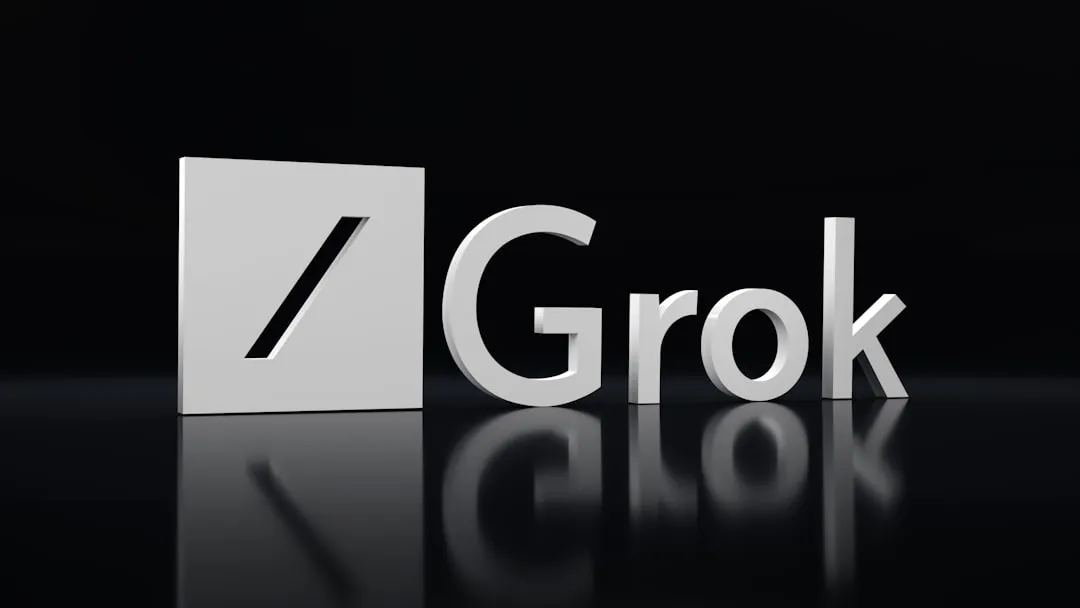When major tech companies start throwing around 70% discounts like confetti at a parade, you know something big is happening. The federal government, typically about as quick to embrace new technology as a turtle climbing Mount Everest, suddenly finds itself in the middle of an AI gold rush. Google is slashing 71% off its Workspace suite, OpenAI is practically giving away ChatGPT Enterprise for a symbolic $1 per agency, and Oracle is cutting 75% off its database software.
These aren't your typical enterprise discounts – we're talking about pricing that defies traditional procurement models where agencies typically negotiate for months just to secure 15-20% reductions. What's driving this unprecedented shift from cautious government technology adoption to an all-out vendor bidding war? And more importantly, what happens when these promotional periods inevitably end?
The discount wars: Who's offering what?
Let's break down these numbers, because they reveal a fundamental transformation in government technology procurement. Google's 71% discount through the U.S. General Services Administration isn't just aggressive pricing – it could generate up to $2 billion in cost savings for federal agencies if adopted government-wide. To put that in perspective, the entire GSA's annual budget is around $1.8 billion, meaning this single discount could effectively double their technology purchasing power.
Here's what makes this particularly revolutionary: the pricing shifts from those painful agency-by-agency negotiations to volume-based pricing for the "entire government." Instead of the Department of Defense negotiating separately from the Department of Education, all agencies benefit from collective bargaining power. Think Costco, but for AI tools – and the membership includes every federal employee.
Meanwhile, OpenAI is taking an even more radical approach with what they're calling a "first-of-its-kind agreement." Every participating federal agency gets access to ChatGPT Enterprise for just $1 per year – that's not a typo. The standard enterprise version typically costs $20-60 per user monthly, meaning a mid-sized agency with 1,000 employees would normally pay $240,000-$720,000 annually. OpenAI is essentially absorbing millions in potential revenue to establish government market presence.
Not to be outdone, Anthropic jumped into the fray, offering Claude to "all three branches of government" for the same symbolic $1 price point. This expansion beyond the executive branch signals these companies view government AI adoption as a whole-of-government opportunity, not just administrative efficiency.
The ripple effects extend well beyond AI specialists. Salesforce slashed Slack pricing by 90%, while Adobe and Elastic have joined with their own steep reductions. This coordinated discount offensive suggests industry-wide recognition that government AI adoption represents a tipping point moment – miss it now, and you're locked out for years.
Why now? The strategic timing behind the generosity
The timing here isn't coincidental – it's precisely calibrated to exploit a unique political and economic window. Google explicitly positioned its discount as capitalizing on the Trump administration's cost-cutting initiatives, but the real opportunity runs deeper. These companies understand that government technology decisions made today will shape vendor relationships for the next decade, especially when Microsoft currently holds an estimated 85% of the federal productivity software market.
What makes this moment particularly strategic is the maturation of AI capabilities. Google has been aggressively enhancing its Workspace suite with AI features powered by its Gemini large language model, transforming basic productivity tools into AI-powered assistants. This isn't just about selling spreadsheet software anymore – it's about positioning comprehensive AI ecosystems as essential government infrastructure.
The early success stories provide crucial validation for this aggressive approach. The Air Force Research Laboratory has been using Google's products since 2021, and their experience likely informed Google's confidence in scaling to government-wide deployment. When specialized military research units successfully integrate consumer-grade tools, it demonstrates that federal security and compliance requirements aren't insurmountable barriers.
The GSA's central role adds crucial legitimacy to what might otherwise appear as desperate vendor tactics. These coordinated efforts through official procurement channels eliminate traditional bureaucratic friction points – security reviews, compliance audits, and compatibility assessments that typically extend government technology adoption cycles from months to years. Picture this: instead of each agency conducting separate vendor evaluations, the entire federal government gains access to enterprise-grade AI tools through streamlined, pre-approved contracts.
The Uber strategy: Teaser rates with long-term implications
Here's where the strategy becomes both brilliant and potentially concerning for government agencies. Industry analysts are drawing direct parallels to Uber's market disruption playbook – offer unsustainably low prices to displace established competitors, then gradually increase costs once switching becomes painful. The current entry-level teaser rates being offered are "simply not sustainable," according to experts who understand that AI infrastructure costs alone typically exceed these promotional prices.
For government agencies, this creates a classic opportunity-risk paradox. The immediate benefits are transformational – OpenAI's partnership makes enterprise-grade AI available to the federal executive branch workforce at "essentially no cost," removing traditional budget barriers that have kept many agencies operating with decades-old systems. Agencies can finally experiment with AI-powered document analysis, automated report generation, and intelligent data processing without justifying massive upfront investments.
But here's where government procurement faces unique vulnerabilities that private companies don't. Once agencies integrate these AI tools into their daily workflows – training staff, building standard operating procedures around the platforms, and creating data dependencies – the switching costs become exponentially higher than typical enterprise scenarios. Government employees require security clearances that take months to transfer between systems. Compliance requirements mean any new vendor faces extensive evaluation periods. Multi-year budget cycles mean agencies can't simply switch vendors when prices increase – they're committed until the next procurement cycle.
When these promotional periods end – Google's discounts are effective until September 30, Oracle's run through November – agencies may discover that their $1 annual ChatGPT license now costs $50,000-$100,000 for agency-wide access. The question isn't whether prices will increase, but whether agencies are building internal capabilities and exit strategies to manage that transition.
What this means for the future of government AI
The current discount war signals a fundamental shift from treating government as a secondary market to viewing it as the primary validator for AI technology at scale. These aren't traditional enterprise sales cycles focused on features and service levels – they're strategic investments in establishing AI as mission-critical government infrastructure, much like email and word processing became indispensable decades ago.
What makes this particularly significant is how the discount strategy directly enables the data generation that will accelerate AI development. When agencies can experiment with AI tools at $1 per year instead of hundreds of thousands, they're more likely to test diverse use cases – from analyzing regulatory comments to processing freedom of information requests to optimizing resource allocation. This experimentation generates the massive, diverse datasets that improve AI capabilities in areas like cybersecurity, regulatory compliance, and public service delivery.
The GSA's coordination creates what they call "discounted packages for the entire government," which could standardize AI adoption in ways that individual procurement efforts never could. Instead of the Department of Agriculture using one AI system while the Department of Transportation uses another, coordinated procurement could create government-wide AI capabilities that enable cross-agency collaboration and data sharing.
Oracle's deal exemplifies this comprehensive approach – beyond database software, they're providing cloud migration assistance and AI services integration. This isn't just software licensing; it's end-to-end digital transformation support that addresses government agencies' historical challenges with technology modernization.
The GSA noted that Oracle's deal is "the first of its kind," establishing templates for how future government AI procurement might work – comprehensive packages that include software, services, and migration support rather than piecemeal technology purchases that leave agencies struggling with integration challenges.
Where do we go from here?
The AI discount wars reveal an industry recognition that government adoption today determines market leadership for the next decade. Unlike previous technology cycles where government lagged years behind private sector adoption, AI companies are betting that government validation will accelerate mainstream acceptance – making early government partnerships worth massive upfront investments.
What distinguishes this teaser rate strategy from typical tech disruption is the stakes involved. When Uber disrupted taxis, the worst-case scenario was inconvenient transportation. When AI tools become embedded in critical government functions – national security analysis, regulatory decision-making, public benefit distribution – the switching costs and risks multiply exponentially.
Government agencies have a narrow but valuable window to leverage these unprecedented discounts while building sustainable AI strategies that account for future pricing realities. The smart approach involves using this promotional period not just to save budget dollars, but to build internal AI expertise, establish clear governance frameworks, and develop vendor-agnostic capabilities that maintain flexibility when promotional pricing ends.
Oracle's comprehensive package – including cloud migration assistance and ongoing support – demonstrates how these partnerships can provide more than software access. Companies willing to invest in government success today position themselves as long-term transformation partners rather than just vendors, but agencies must ensure they're building internal capabilities alongside vendor relationships.
What we're witnessing represents a potential inflection point that differs fundamentally from previous government technology adoptions. Unlike cloud computing adoption that took nearly a decade, or cybersecurity tool deployment that happened reactively after major breaches, AI adoption is being proactively accelerated through coordinated industry investment. The agencies that use this opportunity to build genuine AI capabilities, governance expertise, and strategic flexibility will emerge as leaders in the next generation of government operations. Those who simply accept the discounts without planning for the transition may find themselves more dependent – and potentially more vulnerable – than they anticipated.










Comments
Be the first, drop a comment!